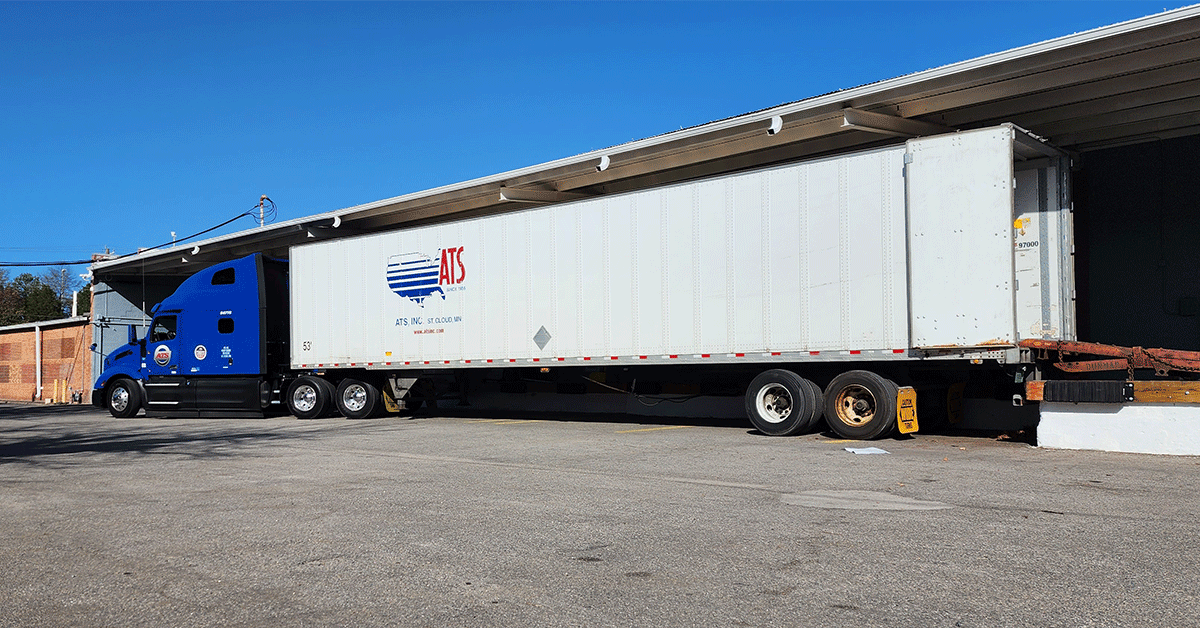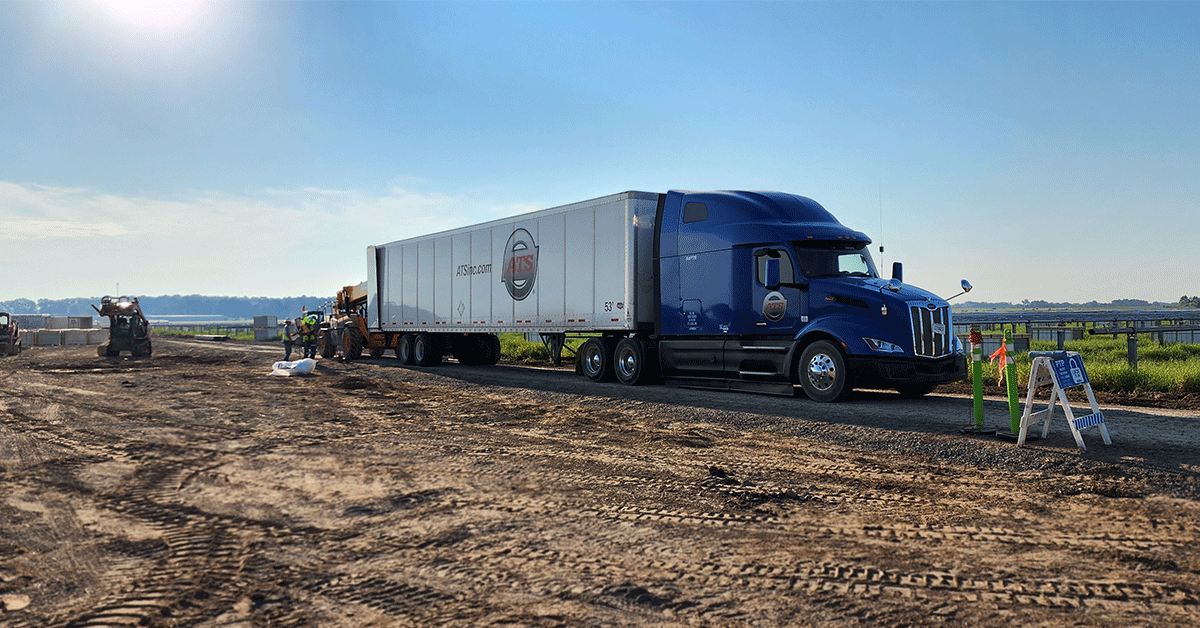
Dry van trailers are used in a variety of industries. In fact, dry vans are utilized more than any other trailer type, providing a convenient solution for many kinds of cargo.
If your business ships freight, you’re probably familiar with this enclosed 53-foot trailer designed to protect cargo from the elements. Often, dry van shipping can present an affordable solution for a company with all kinds of goods to move.
But what kind of products can you ship in a dry van? Are there any you can’t?
Here at Anderson Trucking Service (ATS), our dry van fleet consists of hundreds of drivers, trailers and trucks — primarily operating east of the Mississippi River. For decades, these drivers have hauled countless commodities to and from locations around the U.S.
In this article, you’ll learn the freight that’s most commonly hauled inside of a dry van so you have a better understanding of the capabilities of these trailers.
What Can Be Shipped in a Dry Van Trailer?
Most cargo that can be loaded from the rear via a loading dock, liftgate or some variation thereof, can be shipped in a dry van trailer.
Provided the cargo doesn’t require temperature control and falls within its dimensional confines (8’6” high, 8’6” wide, 53 feet long and 42,000-45,000 pounds) it can be shipped via dry van.
Usually, dry vans are used to ship palletized cargo. Depending on how they’re loaded and the size of each pallet, you can expect to fit 24-32 pallets in a 53-foot one.
Related: How Many Pallets Can You Fit in a 53-Foot Dry Van Trailer?
Many industries, including retail/general merchandise, food and beverage, healthcare and manufacturing rely on dry van trailers each day.

List of Common Dry Van Commodities
Though this is by no means a comprehensive list, dry van trailers are commonly used to ship freight like:
- Clothing items
- Non-perishable food products
- Manufacturing parts and equipment
- Non-perishable beverage products
- Christmas trees
- Consumer goods
- Retail products
- Furniture
- Household goods
- Electronics
- Some chemicals
- Plastics and rubber
- Hospital and precision equipment
- Textiles and leather
- Fertilizers
- Stone products
- Some building products and materials
And so much more. Since these trailers are such a versatile solution — demanded by many companies — they’re a staple piece of most trucking companies. As such, should you need a dry van trailer for your cargo, you’ll have plenty of options to choose from, leaving you with competitive price points to ponder.
Related: What Impacts Your Dry Van Rates? (5 Factors to Understand)
Find the Right Dry Van Carrier For Your Business
There is certainly a lot at stake for your business every time freight leaves your door. While understanding which trailer you need is important, you also need to trust the trucking company you choose can get the job done for you.
So, now that you understand what most commonly ships in a dry van trailer, let’s talk about choosing a transportation partner for these loads. Since so many companies rely on dry van capacity every day, tons of carriers offer this service.
While this gives shippers, like you, a lot of control over which company lands your freight, it can also make it hard to select the best carriers from the field. It’s important to note, however, that not every carrier is cut from the same cloth; there are plenty of unreliable dry van trucking companies in the U.S.
To avoid trusting your freight to an unworthy transportation provider — one that will let you down in the end — it’s important to vet them properly. To help you do so, download this free Freight Carrier Selection Checklist. This checklist, created to guide you through the carrier-vetting process, includes 30 questions to ask potential trucking companies in the future. Take it with you on your career selection journey.
Finally, for more information on the intricate world of dry van shipping, and some tools for success, here is a link to our library of resources on this topic. Make sure to contact us with any questions you have, we’re always happy to help as you work toward becoming the supplier that always delivers for its customers.

